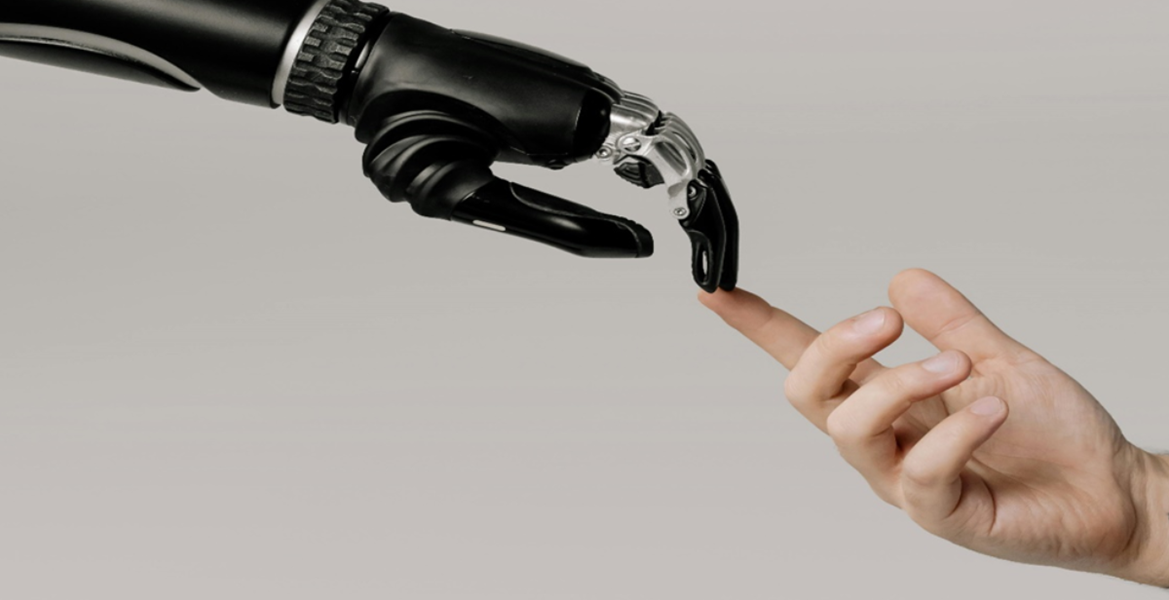Media Releases
Harnessing potential in smart technologies and artificial intelligence in the workplace: Managerial strategies for co-existence and enhanced productivity
Media Releases

Led by a researcher from James Cook University in Singapore, a team employed predictive analytics to identify strategies that employers can adopt to foster more receptive attitudes amongst employees towards innovations such as smart technologies, artificial intelligence, robotics, and algorithms (STARA) in workplaces.
As smart technologies, artificial intelligence, robotics, and algorithms (STARA) continue to redefine the way we work, a recent study sheds light on the role managers play in shaping employees’ experiences and productivity in the hospitality sector.
This study explores how organisations can leverage STARA in supporting hospitality employees to maximise their productivity. Such a study is significant, considering the hospitality industry’s pivotal role in a country’s economy, and leveraging STARA is a key focus for enhancing efficiency and competitiveness in this sector.
“While many earlier articles often highlight the negative impacts of such technological innovations, including the increased propensity of experiencing job burnout or higher turnover intentions, our study takes a different approach. We identify how employees can co-exist with STARA and leverage it to enhance their effectiveness at work. After all, STARA is here to stay and will continue playing an increasingly important role in businesses, whether we like it or not,” explains Lead Researcher Dr Kim-Lim Tan, Lecturer at James Cook University in Singapore.
“In other words, our study aims to understand the psychological mechanisms bridging STARA and individual benefits,” he adds.
To achieve this objective, the researchers adopted the challenge-hindrance framework. When employees are confronted with a new work situation such as the introduction of STARA, two main forms of emotional responses can be triggered. One, employees could perceive STARA as a “challenge” that presents opportunities to enhance productivity and to learn new skills. Alternatively, they may perceive it as potential harm (e.g., loss of work autonomy), that is, a hindrance. Naturally, managers would want to promote perspectives that view STARA as more of a “challenge” rather than a hindrance.
The team further extended the research by understanding if the challenge-hindrance perspective supports or undermines employees’ basic psychological needs for autonomy, competency, and relatedness. While earlier studies have suggested that STARA met employees’ need for more autonomy in managing their job demands, they fell short of providing empirical support. This study is one of the first to understand if these added dimensions could complement the cultivation of a “challenge” perspective, facilitating co-existence between STARA and employees and ultimately fostering a productive work environment.
In reference to the findings, the researchers highlight the need for managers to play a proactive role in navigating the integration of STARA in workplaces.
“At the end of the day, we believe that managers should foster a positive environment where STARA, such as AI, are viewed as an opportunity for growth rather than a threat,” says Dr Tan.
Key findings from the study emphasise the following recommendations for managers:
1. Encourage a Positive View of STARA: Managers should nurture a workplace environment that encourages a positive perception of new technologies such as AI, presenting them as opportunities for personal and professional growth. By advocating this perspective, managers can cultivate higher job satisfaction and performance levels among employees.
2. Create a Supportive Work Environment: Managers should focus on initiatives that meet employees’ needs for relatedness and competency. This may include fostering collaboration, providing skill development opportunities, and acknowledging employees’ adaption efforts. For instance, managers could offer support and resources to help employees cope with the introduction of new technology, including emotional support, open communication, platforms for knowledge sharing, and peer assistance.
3. Implement Recognition and Rewards: Managers should acknowledge and reward employees who excel in adaptation to reinforce their sense of competencies related to STARA. This recognition can bolster employees’ feeling of competence, at the same time, seeking out deserving employees for advancement opportunities. These not only motivate employees to embrace career paths linked to STARA but also cultivate positive perceptions and encourage their adoption of new technologies.
"By implementing these recommendations, managers can not only mitigate employees’ negative perspectives of STARA implementation but also unlock the full potential of it that drives productivity, innovation and competitiveness,” says Dr Tan.
Dr Kim-Lim Tan will be hosting an online public lecture in May 2024, titled ‘To Leverage AI to Increase Employees’ Productivity, is Training the Only Strategy?’ Click here to register. |
PAPER
Kim-Lim Tan, Gabriel C. W. Gim, Ivy S. H. Hii & Wenqian Zhu (2023) STARA fight or flight: a two-wave time-lagged study of challenge and hindrance appraisal of STARA awareness on basic psychological needs and individual competitiveness productivity among hospitality employees, Current Issues in Tourism, DOI: 10.1080/13683500.2023.2224550
Check out Dr Kim-Lim Tan’s staff and research profiles.
Discover further information on areas of research, and research strength at James Cook University in Singapore.
Contacts
Dr Kim-Lim Tan kimlim.tan@jcu.edu.au
Media: Ms Pinky Sibal pinky.sibal@jcu.edu.au / Ms Hoe Shu Rin shurin.hoe@jcu.edu.au